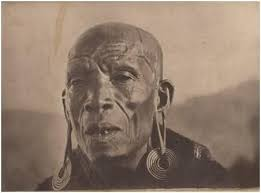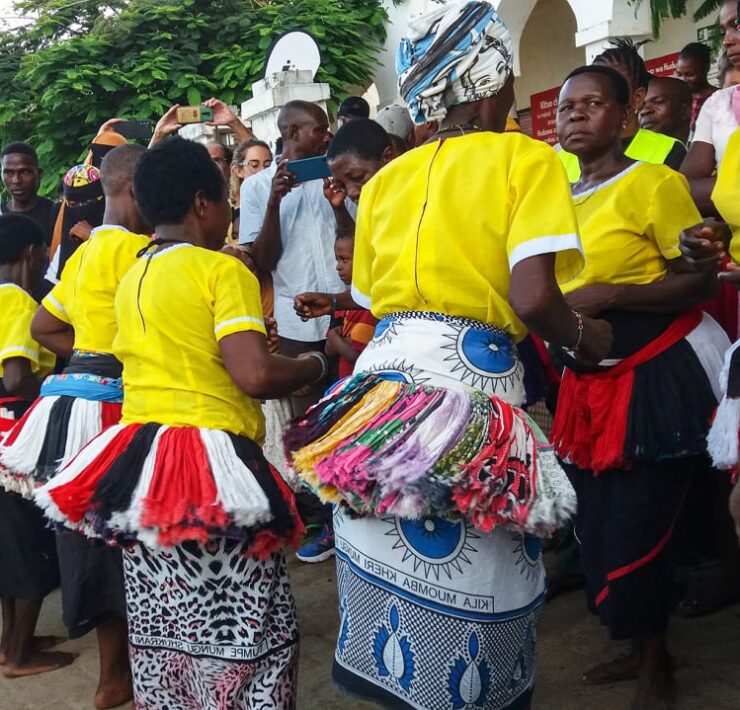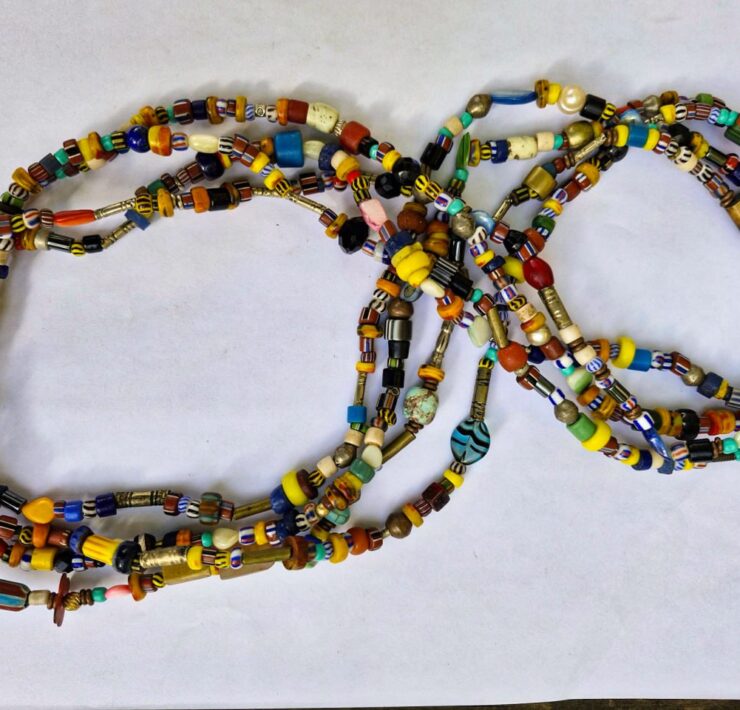The fragile nature of masculinity in Kenya and the dynamics of emasculation in its politics.

Passionate about getting God's message concerning Afrika and the end…
The Kenyan political landscape is a tumultuous arena, notorious for its complexities and often regarded as one of the most ruthless environments where only the most cunning and morally flexible can endure. For newcomers, the idea of upholding integrity feels akin to attempting to brush a crocodile’s teeth—both futile and perilous.
While the winds of change may sway the branches of trees, they will never alter a determined man’s convictions. In Kenya, however, the political atmosphere can belittle, undermine, and even bring about the downfall of individuals with alarming ease, striking fear into the hearts of many.
At political gatherings, men are typically the most prevalent attendees, with women and children—especially those who have left school due to various psychosocial, economic, and political challenges—making up the next largest group. This demographic imbalance highlights how deeply entrenched gender norms shape participation in civic life.
The male dominance in elective offices underscores a troubling reality: many men in the electorate remain passive spectators to the social injustices unfolding around them. This political complacency, often bolstered by flattery and self-interest, perpetuates systemic injustices. The narratives branded as public agendas by political parties largely serve to reinforce traditional masculinity, while subtle practices of emasculation become ingrained as prevailing norms. These dynamics shape party politics and mould the fabric of national governance, often at the expense of equity and justice.
When a politician faces scrutiny from a man, the intricate dynamics of our political landscape often prompt fervent supporters to lash out at anyone who appears to challenge the status quo. This reaction embodies a troubling mentality that disregards the insightful counsel suggesting that when a bee stings, one should avoid the instinctive impulse to annihilate all beehives. Instead, it encourages us to embrace the opportunity to become a bee farmer, nurturing rather than destroying. This harsh cruelty not only stifles rational discourse but also marginalizes men, making them feel impotent in their capacity to engage in the essential task of rebuilding a political consciousness rooted in authentic leadership and effective governance.
The results of the Kenyan elections have sparked widespread contemplation about the disconnect between eloquent manifestos and the actions that follow. Elections have regrettably become synonymous with violence, leaving many men feeling politically emasculated and powerless to resist the encroaching tide of societal disintegration while trying to serve the interests of opportunistic politicians.
In this turbulent political environment, the invocation of gender by many politicians often masquerades as a call for inclusivity. However, this façade of equality is largely a deceptive ploy, unrelated to genuine equity but designed to convey a sense of normalcy amidst chaos. This illusion is further perpetuated by the media, which tends to amplify the clashes between dominant masculine figures, who routinely occupy the front pages and news cycles, overshadowing the voices of those striving for meaningful change.
In this intricate political landscape, women and children are frequently relegated to a subordinate role, their voices muted in the broader community discourse. This raises pressing questions for us as a society: Are we truly confronting the underlying issues that plague our political environment? Furthermore, what part does fragile masculinity play in shaping our political dialogues and fueling the politics of emasculation?
Inherent gender differences do not drive the type of emasculation propagated by our political atmosphere in Kenya; rather, it is rooted in deep-seated stereotypes that portray female candidates as less aggressive or less competent. We have observed a trend where female politicians often associate themselves with male counterparts, branding themselves as “daughters of prominent male politicians” to gain acceptance and legitimacy. In stark contrast, it is rare to find male politicians identifying themselves as “sons of any notable female politician.” This societal conditioning leads us to mistakenly regard political dysfunction as something of value. We have become so paralyzed by this mindset that we have abandoned the timeless wisdom that advises against conforming: a chameleon may change its color to blend in with its surroundings, but the surroundings do not change to accommodate the chameleon. Why, then, do we find ourselves altering our principles to fit the erratic narratives expounded by politicians and compromising our moral compass?
In Kenya, the media, religious organizations, and tribal councils of elders serve as pivotal actors in advancing an ideology known as “flawed populism.” This intriguing concept unfolds in a landscape where corrupt elites fervently assert their role as representatives of “the people.” They cloak themselves in a mantle of moral righteousness, positioning their agenda in stark contrast to other equally corrupt factions, all the while masterfully crafting a facade of virtue and integrity.
According to Cas Mudde, a prominent scholar and author of *Populism*, this ideology encapsulates the idea that society is sharply divided into two opposing camps: “the people,” who are depicted as an inherently virtuous and morally superior force, and “the corrupt elite,” who are vilified as the antithesis of this noble essence. The dramatic tension between these groups creates a compelling narrative that resonates deeply within the fabric of Kenyan society.
Unfortunately, our political landscape is dominated by corrupt elites who expertly manipulate the electorate—primarily men—into believing that their fellow corrupt elites are not the answer. This misleading narrative reverberates through political rallies and events, where control and dominance are constantly affirmed, reinforcing the status quo within their communities.
As a result, we observe the rise of various political entities that appear indifferent to critical issues such as psychosocial health, economic stability, and the intrinsic dignity of the human experience. This journey has been marked by deep-seated abuse, with politicians dismantling the foundations of social cohesion and economic empowerment. They actively choose to ignore the collective trauma that burdens our society, neglecting the vital need to heal and restore the wholeness of humanity.
Why aren’t men questioning the contradictory political ideologies that perpetuate social classes created by corrupt elites to sustain their power? We must recognize that the social fabric has been subject to the political capture of the arts, spirituality, and the people’s right to free speech.
The prevailing interpretation of populism in Kenya has gradually eroded the foundations of rational thinking and critical social perspectives that empower individuals to question the status quo. As a result, countless men find themselves feeling emasculated, caught in a web woven from the criminalization of unemployment, the degradation of the environment, the harsh realities of poverty, and non-human-centric policies that strip away their capacity for meaningful existence.
In moments of despair, when men feel they can no longer meet societal expectations, they often default to deferring their responsibilities to a dominant male figure. This archetype of masculinity is deeply entrenched in the cultural narrative, characterized by aggressive behaviors, corrupt practices, and abusive leadership, which collectively set a troubling benchmark for what constitutes success.
Our criteria for judging who is fit for public office have become distorted, as we abandon the essential dignity and humanity that should lie at the heart of true masculinity. Men need to be aware that if they believe they have a politician dancing to their tune, it would be prudent to assess their own vulnerabilities. When that politician’s influence turns oppressive, the lines between political affiliations blur, rendering ideological differences irrelevant.
In essence, much like a child learns to stand by first crawling, we, too, must rise from the depths of political apathy and passivity. A man’s true character is revealed through his actions during times of hardship. Rather than merely voicing frustration in response to perceived threats to their masculinity, men can channel their energies into confronting political injustices and advocating for transformative political ideologies that foster mental, economic, and spiritual liberation within our society.
We need to summon our collective courage and dismantle the emasculating politics that erode rationality, independence, humanity, and our vision for a brighter future for generations to come. This insidious brand of politics flourishes on the soil of prejudice and the rampant misappropriation of public funds, creating an environment where every man is forced to confront fears born out of political manipulation.
True courage emerges from the understanding that a brave man is not defined by an absence of fear but by his ability to conquer it. We must rise above the shadows cast by political puppeteers and reclaim our masculinity as a powerful force for upholding human dignity. Our current political climate often blinds men, expecting them to guide society across turbulent waters without the strength of genuine masculinity as their compass.
Every son, husband, father, and elder must rise to the occasion and echo the age-old truth: “A man’s greatest battles are the ones he fights within himself.” As we look inward, we must recognize the vulnerabilities and diminished self-worth that politicians exploit for their own advantage.
Masculinity must take heed of a profound truth: if a man chooses to ride on the back of a tiger, he should not be astonished when he finds himself swallowed whole. We must ask ourselves: How can we reclaim our strength and dignity in the face of political emasculation, paving the way for a more just and humane future?
What's Your Reaction?
Passionate about getting God's message concerning Afrika and the end times to the world, in order to heal, restore and rebirth Afrika to her true purpose and destiny in God.

















